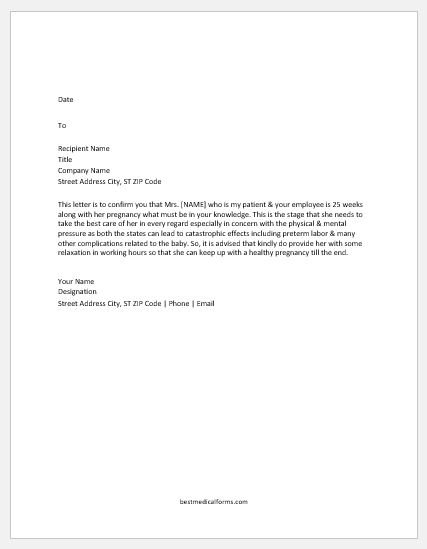


DOCTORS NOTE FOR REASONABLE ACCOMMODATION TRIAL
The doctor's note releasing her to return to work ' on a trial basis ' in.
DOCTORS NOTE FOR REASONABLE ACCOMMODATION HOW TO
That’s why we’re thrilled to offer you our comprehensive, newly updated HR Management & Compliance Report: How To Comply with California and Federal Leave Laws. Reasonable Accommodation Was Not Requested or Required Even if plaintiff. And to do that, you need current, complete info on the web of state and federal leave laws that apply to you in California-as well as clear explanations of how they interact with one another. The best way out of a sticky leave-related dispute is to avoid getting embroiled in it in the first place. Leave Mistakes: Better Prevented Than Remedied You must tread carefully through the maze of leave laws to avoid lawsuits. Indeed, there is often confusing interplay between the various California and federal leave laws, including the Family and Medical Leave Act (FMLA), the CFRA, California’s pregnancy disability leave law, and the “Kin Care” and “California Paid Family Leave” laws. While the defects in Holley’s claims seem clear, navigating leave laws is no easy task. Waddington North America (California Court of Appeal, Second Appellate District, 3/15/12, unpublished). Rather, there simply was no accommodation available. Thus, Holley wasn’t terminated because he requested an accommodation. While the note contradicted his earlier representation that he could perform the duties of his prior position and his request that he be reinstated, the doctor’s note was deemed reliable and controlling. Simply put, his employment was terminated because after exhausting his leave and after the employer granted additional leave beyond legal requirements, he submitted a doctor’s note indicating he couldn’t return to work at all.Ĭonfused about an important leave-related issue? Don’t be. Holley’s claim that his termination was in retaliation for requesting an accommodation failed for similar reasons. The court disagreed and explained that the employer wasn’t required to defer to Holley’s own (albeit after-the-fact) medical opinion, especially when it contradicted an actual medical opinion. Holley argued during litigation that the doctor’s assessment was merely “prophylactic” and that he could have returned to work and resumed his prior duties. Instead, he submitted a note from his doctor stating that he was “totally incapacitated.” The court agreed that the note indicated he couldn’t return to work in any capacity. Despite being offered a transitional position, he failed to accept the offer and didn’t return to work. Holley couldn’t satisfy the second prong of that requirement. To prevail on this type of claim, he had the burden of showing that 1) he was terminated because of his disability, and 2) he could perform the essential functions of his job with or without a reasonable accommodation. Holley claimed that his termination was discriminatory because it was based on his physical disability. ‘Totally Incapacitated’ Means Totally Unable To Work


 0 kommentar(er)
0 kommentar(er)
